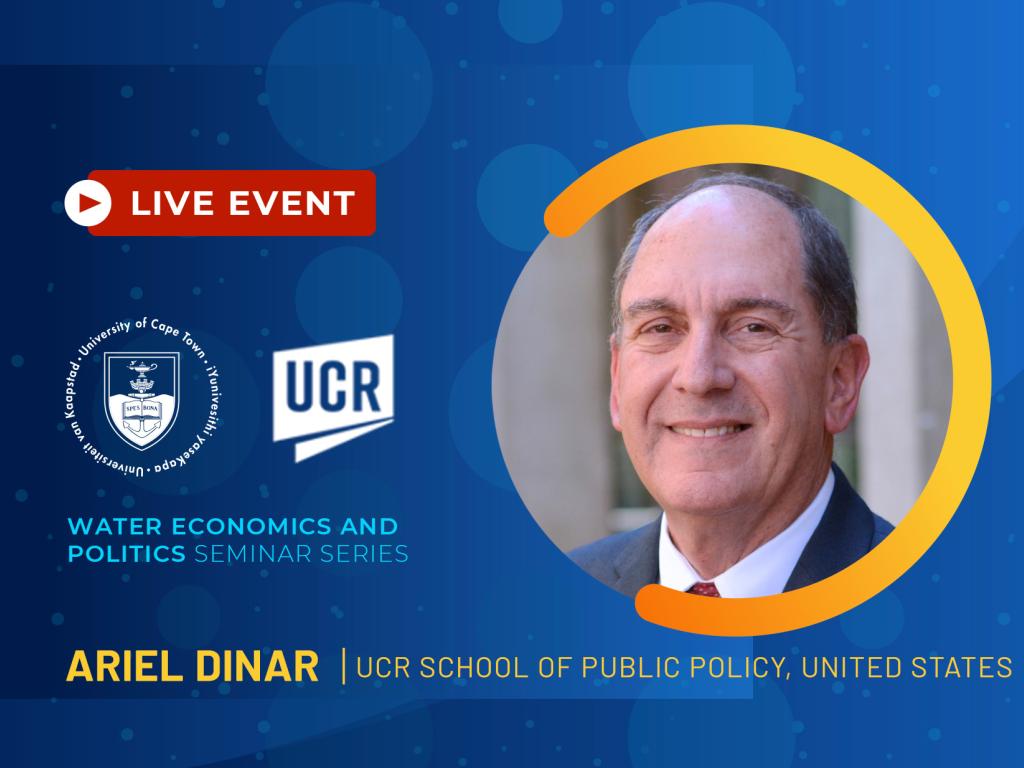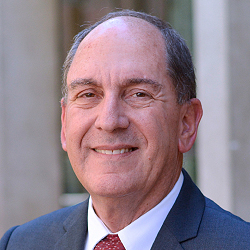Could recycled wastewater be indeed a global solution to water scarcity?


Water Economics and Politics Seminar Series
/ Wastewater strategies
Speaker: Distinguished Prof. Emeritus Ariel Dinar | School of Public Policy, University of California, Riverside (UCR), United States
Time: 16:00 South African Standard Time (SAST) | GMT +2
Topic: Water scarcity has been deteriorated in many parts of the world due to multiple causes, including population growth, lifestyle changes, increased demand for food and the impacts of climate change. Recent assessments suggest that the volume of wastewater locally and globally is increasing, providing larger volumes of wastewater appropriate for irrigation. Are more available wastewater resources the only condition for the relaxation of water scarcity globally? Additional considerations need to be included in the analysis of the role of treated wastewater in irrigated agriculture. The seminar will present work and discuss aspects related to difficulties in using treated wastewater for irrigated agriculture and how these difficulties may be addressed. Issues will include: the ability-to-pay for treated wastewater; a stable and acceptable allocation of treated wastewater among users; distribution among the polluters and the users of costs and benefits associated with the use of wastewater for irrigation; and creation of compensation mechanisms to attract potential users to remain part of the wastewater treatment and re-use ‘game’.

About the speaker: Ariel Dinar is a Distinguished Professor of Environmental Economics and Policy, Emeritus at the School of Public Policy and a Professor of the Graduate Division at the University of California, Riverside (UCR), United States. His work has focused on various aspects of economic and strategic behaviour associated with management of natural resources and the environment. Dr Dinar received his PhD from the Hebrew University of Jerusalem. Since then he spent 15 years in the World Bank working on water and climate change economics and policy. In 2008, Dr Dinar assumed a professorship at UCR. Dr Dinar founded the Water Science and Policy Center, which he directed until 2014. Dr Dinar is an International Fellow of the Center for Agricultural Economic Research of the Hebrew University of Jerusalem, Israel since November 2010; a Fulbright Senior Specialist since 2003; and was named a 2015 Fellow of the Agricultural and Applied Economics Association. He authored and co-authored nearly 220 publications in peer reviewed journals, policy outlets and book chapters. He co-authored and edited 29 books and textbooks. He founded two technical journals (Strategic Behavior and the Environment, and Water Economics and Policy) for the latter one he serves at present as an Editor-in-Chief. He founded and serves as the Editor-in-Chief of the book series Global Issues in Water Policy. More: Ariel Dinar profile on University of California, Riverside.